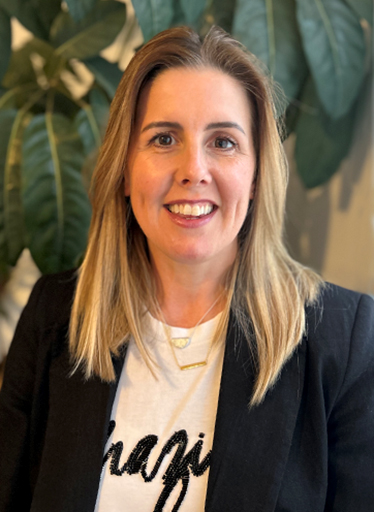
“I love working with young people. Being able to spend time and listen to what’s happening in their lives. Helping them to grow the skills and the confidence to manage life’s challenges. It has provided an opportunity for me to grow as a practitioner.“
Hi Naomi, thanks for your time. What does a school social worker do?
I work at the Department for Education to support children and their families to have equal access to education. To make sure they’re safe, known, and cared for when they’re on school grounds. I also do a significant amount of work around keeping kids safe when there are difficulties within the home.
Do you work at different schools?
Yes, usually a school social worker will have more than one school. I work two and a half days per week at two schools. Sometimes there might be an incident happening at another school. When this happens, my manager will call me and say can you please come and support this school. You need to be flexible.
What ages are the students you’re working with?
I work with children from around the age of four or five right up until they leave school, so that can be age 18.
What do you love about your job?
I love working with young people. Being able to spend time and listen to what’s happening in their lives. Helping them to grow the skills and the confidence to manage life’s challenges. It has provided an opportunity for me to grow as a practitioner. I’m also able to support new social workers and students on their work placements who’ll work alongside me for a couple of months before they graduate.
What are some of the challenges for you?
I’d say the number of students that I work alongside. I often need to have conversations with families about what’s happening with their young person. It can be difficult for the parents to hear from a social worker about something that happened to their child.
How do you find out about the kids who may need your help?
Teachers will make referrals if they notice one of their students isn’t tracking so well. Occasionally parents will contact me and say they’re worried about their young person and could somebody please talk to them. Then some kids will come to our attention through intervention and notification. We’re often working at the pointy end of kid’s needs.
How many students would you be seeing in the course of a week?
On average, I’d be seeing about five students a day. During each session, I’m trying to build the capacity for students to manage things better themselves. Also, to build in external support if I’m not around. But if a child is in crisis, I’ll see that child as often as I can.
Do you find it hard to switch off at the end of the day?
I listen to audio books on my way home and prioritise self-care. I get a great deal of support from my senior social workers and peer supervision sessions which reminds me that I’m part of a larger team who can support me. There are some days that are harder to switch off from than others but I’ve got an amazing team around me.
Do you remember a particular moment when you decided you wanted to become a social worker?
I think I always wanted to help people. After completing a Bachelor of Arts Degree in Criminology and Sociology I went back to university and I did a Master of Social Work. So that was two years full-time on top of my first degree.
How long did it take to get a job after you’d finished university?
I’d secured a job before I’d finished my degree. One of the great things about a social work qualification is that you gain practical experience with an organisation. I did my final placement at the Phoenix Centre, which is the trauma and support service for refugees and migrants. Then, on the following Monday, I started a job at Life Without Barriers as a case manager for foster kids.
What are the skills you need to be a good social worker?
A listener, have empathy and be non-judgmental. These things make a great foundation for being a good social worker. You can’t avoid the challenging conversations. And you’re trying to overcome a strong historical hangover in families who worry you’re possibly going to take their kids away. Social work is about building capacity by supporting children, young people and their families. It’s about providing support when and where they need it. It’s a partnership.
Are there lots of jobs for social workers?
There are heaps and heaps of jobs. And there are so many different types as well. You can work in mental health. You can work with children or older people. You can work in disability services. Or refugee and migrant communities. In every area of life, there is a space and an opportunity for social workers. It’s probably the most versatile degree. You can work in hospitals, schools, criminal justice, prisons, remote areas, in big cities – it can take you anywhere.
Do you remember the first job you had back in high school?
My first job was working in a lolly shop at around 15 years of age. A family friend had an ice cream store, a bit like the Renown if you know Hobart. You could buy hot donuts and different types of chocolates and lollies. I worked there for one summer.
When you’re not working, what do you like to do?
Embarrassingly, I’ve just taken up line dancing, which I do with my daughter. I started at the beginning of this year, and it’s a good laugh. There’s a great mix of people there; young kids, families, and some older people who are there to get some exercise. I also go to the gym, and I’m in a book club.
What advice would you give a student who doesn’t know what they want to do when they leave school?
Find your passion. If you’re dragging yourself to your job every day, and there’s no benefit other than the financial benefit, then I’d say figure out what you enjoy doing and find a job that fits with that.

Find out more
Explore careers in social work through the University of Tasmania’s Bachelor of Social Work with Honours and Master of Social Work (Qualifying). These programs prepare you to make a real difference in people’s lives by addressing social justice, human rights, and community wellbeing. Discover pathways into roles such as child safety practitioner, mental health social worker, policy advisor, and community development specialist.
Even while you’re still in school, you can begin building your future through Work-based Learning (WBL), School-based Apprenticeships (ASbA), and VET qualifications. These programs give you hands-on experience and real-world skills to prepare for a successful career in social work.
Take a quiz, find your future
Curious about the kinds of problem‑solving involved in different jobs? Our Industry Quizzes webpage offers a range of short activities that aren’t formal tests of reading or maths, but they can give you a clearer sense of the skills you already use and the ones you might want to build.
